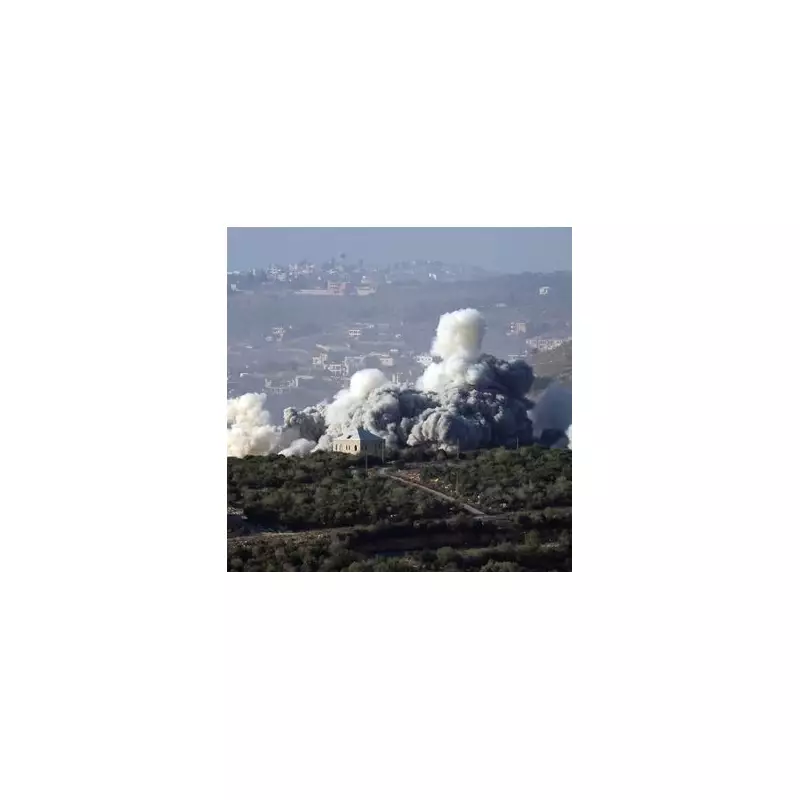
Ceasefire Violations Spark Regional Escalation Fears
Israeli military forces have conducted air strikes in Gaza that reportedly extend beyond the established "yellow line" demarcation, violating the seven-week-old ceasefire agreement. Multiple explosions were reported throughout southern and central Gaza, including targeted attacks on Bureij camp and Khan Younis, according to sources within the Strip.
The timing of these strikes coincides with intensified Israeli operations against Lebanese Hezbollah fighters, raising significant concerns about the potential outbreak of another full-scale conflict along Israel's northern border. This development comes just as the fragile ceasefire appeared to be transitioning toward its second phase.
Northern Front Tensions Mount
Prime Minister Benjamin Netanyahu issued a stark warning following recent bombings in Beirut, stating: "We expect the Lebanese government to uphold its commitments, namely, to disarm Hezbollah." He further emphasised Israel's position, adding: "We won't let Lebanon become a renewed front against us, and we'll do what's necessary."
The situation in Lebanon has deteriorated significantly since the ceasefire agreement was established months ago. At least 127 civilians have been killed in Lebanon during this period, with recent Israeli strikes in Beirut claiming the life of Hezbollah chief of staff Haytham Tabtabai and several fighters.
Israel maintains that Hezbollah has been actively rebuilding its military capabilities in violation of ceasefire terms. The conflict has displaced more than 64,000 people in Lebanon who remain unable to return home due to widespread destruction or ongoing security risks.
Hostage Situation and Peace Process Stalled
The recent handover of the body of hostage Dror Or means only two bodies remain within Gaza. The 48-year-old father of three was killed by Palestinian Islamic Jihad during the Hamas-led attack on southern Israel on 7 October 2023. His body was subsequently taken to Gaza as a hostage.
The two remaining deceased hostages include Israeli citizen Ran Gvili, 24, and Thai national Suthisak Rintalak, 43. While all living hostages have been released by Hamas, the slow progress in returning the remaining bodies and prisoners has stalled advancement to the second phase of the Gaza peace plan.
This next phase involves critical discussions about Gaza's governance, Israeli troop withdrawal, Hamas disarmament, and reconstruction efforts. Thus far, Israel has freed nearly 2,000 Palestinian prisoners and returned the bodies of 345 prisoners.
The human cost of the conflict remains staggering. At least 70,000 people have died in Gaza since the initial Hamas attack on southern Israel on 7 October 2023, which resulted in 1,200 Israeli deaths and 250 hostages taken to Gaza. The United Nations describes the situation as a "human-made abyss" that will require £53 billion and several decades to rebuild.
The violence has also spread to the West Bank, where Israeli security forces have conducted raids and arrests in Qalqilya, Tubas, Hebron, Tulkarem and Nablus. Meanwhile, many of the thousands of Israelis who fled northern homes due to Hezbollah missile threats have returned after government assurances in March that it was safe to do so.





